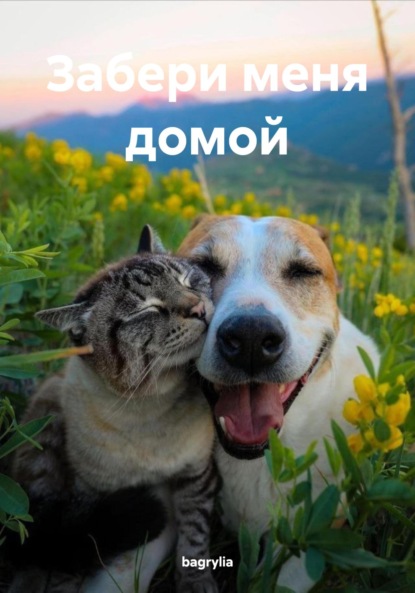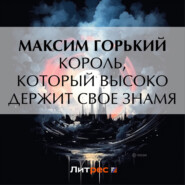По всем вопросам обращайтесь на: info@litportal.ru
(©) 2003-2024.
✖
Mother
Настройки чтения
Размер шрифта
Высота строк
Поля
This allusion to the coming of others recalled her fear to her.
"If they all are only like this one!" was her ardent wish.
Again steps were heard on the porch. The door opened quickly, and the mother rose. This time she was taken completely aback by the newcomer in her kitchen – a poorly and lightly dressed girl of medium height, with the simple face of a peasant woman, and a head of thick, dark hair. Smiling she said in a low voice:
"Am I late?"
"Why, no!" answered the Little Russian, looking out of the living room. "Come on foot?"
"Of course! Are you the mother of Pavel Vlasov? Good evening! My name is Natasha."
"And your other name?" inquired the mother.
"Vasilyevna. And yours?"
"Pelagueya Nilovna."
"So here we are all acquainted."
"Yes," said the mother, breathing more easily, as if relieved, and looking at the girl with a smile.
The Little Russian helped her off with her cloak, and inquired:
"Is it cold?"
"Out in the open, very! The wind – goodness!"
Her voice was musical and clear, her mouth small and smiling, her body round and vigorous. Removing her wraps, she rubbed her ruddy cheeks briskly with her little hands, red with the cold, and walking lightly and quickly she passed into the room, the heels of her shoes rapping sharply on the floor.
"She goes without overshoes," the mother noted silently.
"Indeed it is cold," repeated the girl. "I'm frozen through – ooh!"
"I'll warm up the samovar for you!" the mother said, bustling and solicitous. "Ready in a moment," she called from the kitchen.
Somehow it seemed to her she had known the girl long, and even loved her with the tender, compassionate love of a mother. She was glad to see her; and recalling her guest's bright blue eyes, she smiled contentedly, as she prepared the samovar and listened to the conversation in the room.
"Why so gloomy, Nakhodka?" asked the girl.
"The widow has good eyes," answered the Little Russian. "I was thinking maybe my mother has such eyes. You know, I keep thinking of her as alive."
"You said she was dead?"
"That's my adopted mother. I am speaking now of my real mother. It seems to me that perhaps she may be somewhere in Kiev begging alms and drinking whisky."
"Why do you think such awful things?"
"I don't know. And the policemen pick her up on the street drunk and beat her."
"Oh, you poor soul," thought the mother, and sighed.
Natasha muttered something hotly and rapidly; and again the sonorous voice of the Little Russian was heard.
"Ah, you are young yet, comrade," he said. "You haven't eaten enough onions yet. Everyone has a mother, none the less people are bad. For although it is hard to rear children, it is still harder to teach a man to be good."
"What strange ideas he has," the mother thought, and for a moment she felt like contradicting the Little Russian and telling him that here was she who would have been glad to teach her son good, but knew nothing herself. The door, however, opened and in came Nikolay Vyesovshchikov, the son of the old thief Daniel, known in the village as a misanthrope. He always kept at a sullen distance from people, who retaliated by making sport of him.
"You, Nikolay! How's that?" she asked in surprise.
Without replying he merely looked at the mother with his little gray eyes, and wiped his pockmarked, high-cheeked face with the broad palm of his hand.
"Is Pavel at home?" he asked hoarsely.
"No."
He looked into the room and said:
"Good evening, comrades."
"He, too. Is it possible?" wondered the mother resentfully, and was greatly surprised to see Natasha put her hand out to him in a kind, glad welcome.
The next to come were two young men, scarcely more than boys. One of them the mother knew. He was Yakob, the son of the factory watchman, Somov. The other, with a sharp-featured face, high forehead, and curly hair, was unknown to her; but he, too, was not terrible.
Finally Pavel appeared, and with him two men, both of whose faces she recognized as those of workmen in the factory.
"You've prepared the samovar! That's fine. Thank you!" said Pavel as he saw what his mother had done.
"Perhaps I should get some vodka," she suggested, not knowing how to express her gratitude to him for something which as yet she did not understand.
"No, we don't need it!" he responded, removing his coat and smiling affectionately at her.
It suddenly occurred to her that her son, by way of jest, had purposely exaggerated the danger of the gathering.
"Are these the ones they call illegal people?" she whispered.
"The very ones!" answered Pavel, and passed into the room.
She looked lovingly after him and thought to herself condescendingly:
"Mere children!"
When the samovar boiled, and she brought it into the room, she found the guests sitting in a close circle around the table, and Natasha installed in the corner under the lamp with a book in her hands.
"In order to understand why people live so badly," said Natasha.
"And why they are themselves so bad," put in the Little Russian.
"It is necessary to see how they began to live – "

















